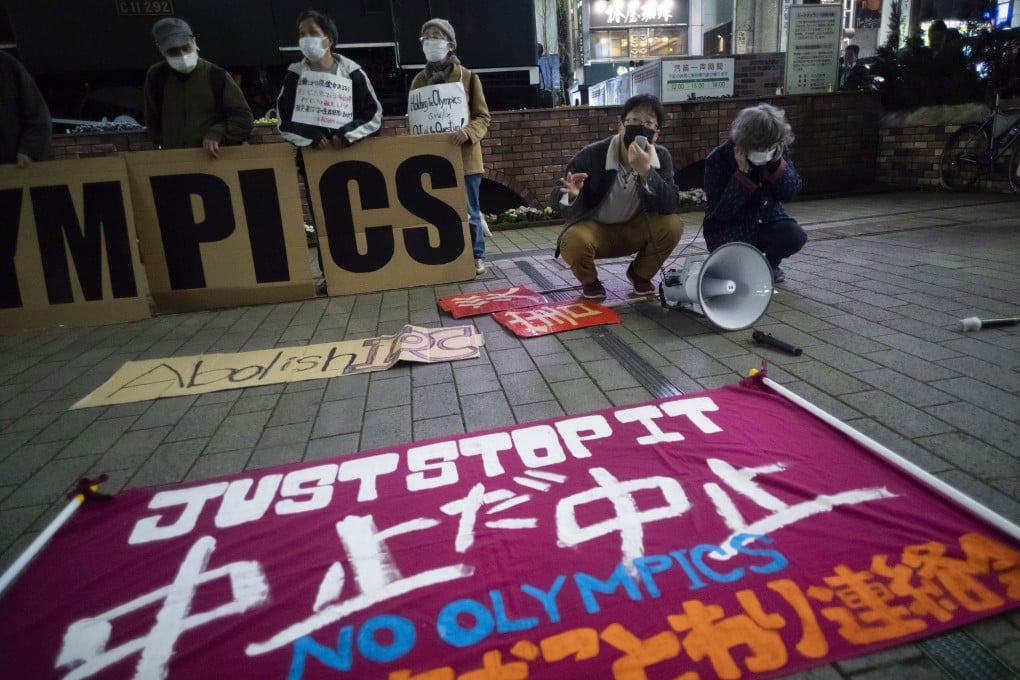Advertisement
Tokyo Olympics: nine Japanese governors want option to scrap Games amid coronavirus surge
- The leaders of Saitama, Shizuoka and Yamanashi prefectures – which are due to host soccer matches and the cycling road race – are among those with doubts
- With 11 weeks to go before the opening ceremony, Covid-19 infections in Tokyo are rising, driven by the B.1.1.7 strain first discovered in Britain
Reading Time:4 minutes
Why you can trust SCMP
2

The governors of nine Japanese prefectures believe the Tokyo Olympic Games should be postponed again or cancelled outright if the present surge in coronavirus cases cannot be brought under control.
The Mainichi newspaper interviewed the governors of all 47 Japanese prefectures, with nine local leaders saying that scrapping the Games should be an option if the safety of athletes, spectators and members of the public could not be guaranteed. Three of those prefectures – Saitama, Shizuoka and Yamanashi – are close to Tokyo and are scheduled to host events, including soccer matches and the cycling road race.
Most of the other governors hoped that the government and the organisers would be able to implement sufficient precautions for the Games to go ahead safely.
Advertisement
With just over 11 weeks until the opening ceremony, there is growing concern that time is running out for drawing up plans to minimise the spread of the virus and to then implement them.
Those fears are being stoked by the continued spread of the disease. The organisers of the Olympic Torch relay confirmed on Monday that six more people assisting with the event in Kagoshima, in southern Japan, had tested positive for the virus, bringing the total to eight.

02:44
Asian-American athletes vow to fight racism and violence as well as represent the US at Olympics
Asian-American athletes vow to fight racism and violence as well as represent the US at Olympics
There were 708 new cases recorded in Tokyo on Monday, up by 283 from one week previously, while the seven-day average of daily cases over the preceding week came to 873.6, nearly 20 per cent higher than the figure for the previous seven-day period. People in their 20s accounted for the largest number of the new infections, while health experts are warning that most new cases are of the highly infectious B.1.1.7 strain of the illness, first discovered in Britain.
Advertisement
Select Voice
Select Speed
1.00x